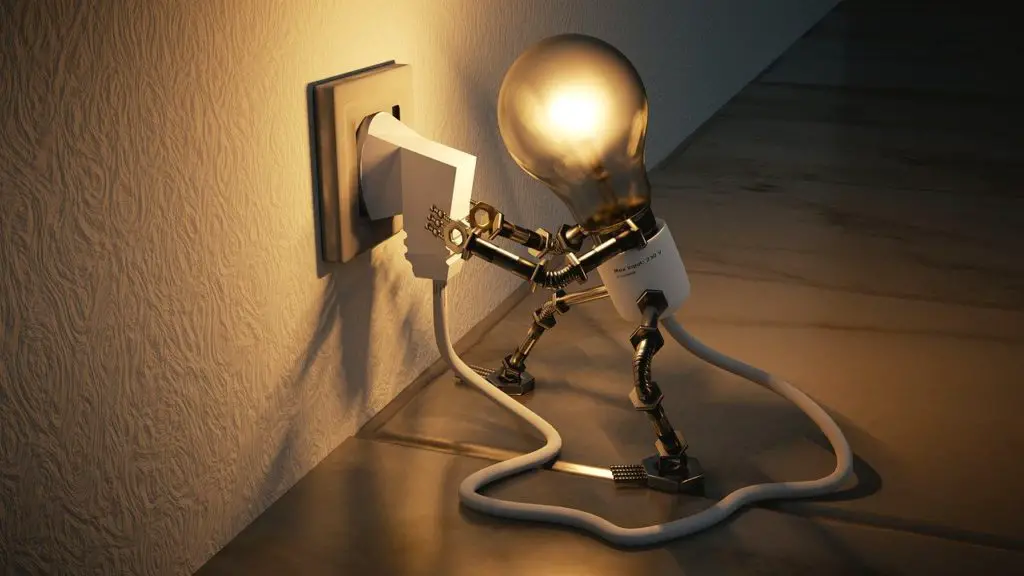
Smart bulbs come under the category of smart lighting, lighting you can control with the help of an app, usually on your android or iPhone.
The app enables you to turn lights on and off, alter the brightness, and even change the colors if you have colored LEDs.
Some smart bulbs work without Wi-Fi. There are smart bulbs and other smart lighting options that function without Wi-Fi as they are controlled through Bluetooth and Z-Wave technology. These bulbs will not require Wi-Fi or an internet connection to function.
A popular misconception about smart lighting is the belief that Wi-Fi is a requirement for it to function.
Though some smart bulbs require Wi-Fi to work, two other smart lighting types work without Wi-Fi.
These work with the help of Z-Wave and Bluetooth. To learn more about smart lighting and how it works, keep reading!
How Do Smart Bulbs Work?
Smart bulbs are light fixtures that can be controlled wirelessly, eliminating the need to turn switches on and off manually as with regular light bulbs.
They also give you the ease to control it from anywhere with just your phone.
Smart bulbs can also be paired with smart switches, through which you can schedule them to be switched on or off during a particular time each day.
In most cases, smart bulbs require a home automation hub to function. This is what enables you to operate the bulb wirelessly.
Most home automation hubs communicate through Bluetooth, Wi-Fi, and Z-Wave or ZigBee.
An added benefit of smart lighting is that you can connect it to other devices and appliances in your home, such as motion sensors, which will program the lights to turn on whenever someone enters a room.
Types of Smart Bulbs
As mentioned earlier, there are two other types of smart bulbs apart from the Wi-Fi operated bulbs. Let’s have a close look at all three of these types below.
Wi-Fi Smart Bulbs
Wi-Fi smart bulbs do not require a hub to function. They work like any Wi-Fi operated product, which makes them quite easy and simple to install. All you need to do is install it and use the app to connect it to your Wi-Fi network.
However, it is advisable to use Wi-Fi bulbs only if you plan on having just a few smart bulbs around the house.
This is because too many smart bulbs can end up overcrowding the Wi-Fi network, as each bulb acts as a Wi-Fi device that connects to your router.
If you’re okay with only having a handful of smart bulbs around your home, you can definitely rely on a Wi-Fi-based smart bulb.
If you would like to go for this smart bulb, I recommend checking LIFX A19 Mini Wi-Fi Smart Led Light Bulb, one of the most sought-after Wi-Fi-based smart bulbs.
It has built-in Wi-Fi capability, which means it is a standalone smart device and does not need a hub to operate.
It also comes with an easy to install design, where you need to simply screw in the device and then follow the instructions to connect it to your device. Additionally, it comes in a variety of colors.
Bluetooth Smart Bulbs

If you would like to invest in lightbulbs that can function without Wi-Fi, this is one of the two options you can consider.
This smart bulb merely requires a Bluetooth connection for it to work.
This is a great option if you need a bulb that is far from your Wi-Fi coverage or if you simply live in a place with terrible Wi-Fi. All you need to operate these smart bulbs is your smartphone.
The ilumi Bluetooth Smart LED A19 Light Bulb is a great option if you’re considering Bluetooth smart bulbs.
It offers 16 million colors and shades of white so you can choose the exact shade that will work for you.
It uses a technology called Bluetooth mesh connectivity, which means you can control up to 50 different bulbs using the Ilumi app.
It is a little expensive for one bulb, but it does offer a variety of features. If you’re keen on getting a smart bulb that isn’t Wi-Fi dependent, this can be a great option.
If you would like to get a Bluetooth smart bulb that fits within your budget, then I recommend the Magic Hue Bluetooth Smart Bulb, which is a great bargain.
At only $17 per bulb, you get the same 16 million color palette of the more expensive smart bulbs. It also can sync with music and has a scheduler as well.
The only real drawback to these bulbs is that they can’t be controlled from outside the Bluetooth range.
The further you move away from it, the weaker the connection gets until it’s eventually lost.
Z-Wave or ZigBee Smart Bulbs
Z-Wave works with the mesh network topology, which means that each Z-Wave device becomes a signal repeater. Simply put, the more devices you have in your home, the stronger your network becomes.
Additionally, Z-Waves are always strong as they can intelligently route themselves around obstacles and attain seamless coverage. Each Z-Wave network can support up to 232 Z-Wave devices, making it an excellent choice for all the lighting in your smart home.
ZigBee is also a similar mesh network. There are just a few differences between the two, such as the number of devices it can support and the reliability of the coverage. While ZigBee is a network that can support at least 50k devices, the Z-Wave signal strength is generally more reliable. Additionally, Z-Wave devices have a wider range than ZigBee, which often experiences poor network when devices are out of range.
With the data presented from various users and reliable sources, it is safe to say that though ZigBee and Z-Wave have very few differences, Z-Wave seems to be a more reliable network when compared with ZigBee.
Z-Wave is a great option when installing smart lighting in your home without the hassle of Wi-Fi connectivity.
If you’d like to check out a few affordable Z-Wave smart bulbs, I recommend Ilumin Z Wave Light Bulb. This gives you a dimmable, color-changing smart bulb that is also compatible with Alexa.
This bulb also has excellent reviews on Amazon, which you can have a look at if you aren’t convinced!
Apart from the obvious aim of making your life easier, smart bulbs also have more pros than cons to their usage. Here’s a list of benefits that apply to all smart bulbs, irrespective of their network and connectivity:
- They have improved color representation and many different hues, giving you the ability to find the perfect color for your home.
- They also give various shades of white, which include warm and cool tones to suit the mood and time of day as well.
- Most smart bulbs are compatible with other devices like Alexa, Siri, and Cortana. This gives you the power to turn lights on and off through voice control.
- They are easily controlled through apps on your smartphone and can be operated even when you aren’t at home.
- You can schedule them to either turn on or off when you are not around.
- They are dimmable, which means they can never be too harsh on your eyes!
Conclusion
To summarize this article, smart bulbs can most definitely function without Wi-Fi. You only need to find the right bulbs which do so. Also, many smart bulbs come at affordable prices and can be a great investment for your home!
